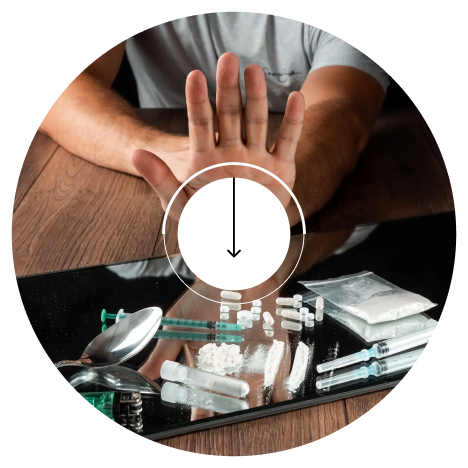Healthy Habits, Sober Life: A Guide to Wellness and Recovery





Embarking on the journey to sobriety is a monumental achievement that requires courage, determination, and support. While the path to recovery is unique for each individual, developing healthy habits is a crucial aspect of maintaining sobriety and achieving overall wellness. In this blog, we’ll explore various strategies and practices that can help foster a balanced, fulfilling, and sober life.
- Prioritize Physical Health
Exercise Regularly: Engaging in regular physical activity is a powerful way to boost your mood, reduce stress, and improve your overall well-being. Exercise releases endorphins, which are natural mood lifters, and can help combat the cravings and emotional lows that often accompany recovery. Aim for at least 30 minutes of moderate exercise most days of the week. Activities like walking, running, swimming, or yoga can be particularly beneficial.
Eat a Balanced Diet: Nutrition plays a vital role in recovery. A well-balanced diet provides the necessary nutrients your body needs to heal and function optimally. Focus on consuming a variety of fruits, vegetables, whole grains, lean proteins, and healthy fats. Avoid excessive sugar and processed foods, which can lead to mood swings and energy crashes. Staying hydrated is equally important, so drink plenty of water throughout the day.
Get Adequate Sleep: Quality sleep is essential for physical and mental health. During recovery, your body and mind need rest to repair and rejuvenate. Aim for 7-9 hours of sleep per night. Establish a consistent sleep routine by going to bed and waking up at the same time each day, and create a relaxing bedtime environment to promote restful sleep.
- Focus on Mental Health
Practice Mindfulness and Meditation: Mindfulness and meditation are effective tools for managing stress, reducing anxiety, and maintaining emotional balance. These practices encourage you to stay present in the moment and develop a greater awareness of your thoughts and feelings. Start with just a few minutes a day, gradually increasing the time as you become more comfortable with the practice.
Seek Therapy and Counseling: Professional support is invaluable in recovery. Therapy and counseling can help you address underlying issues, develop coping strategies, and navigate the challenges of sober living. Cognitive-behavioral therapy (CBT), dialectical behavior therapy (DBT), and other therapeutic approaches can provide you with the tools needed to maintain sobriety and improve mental health.
Set Realistic Goals: Setting and achieving realistic goals can provide a sense of purpose and direction in your recovery journey. Break down larger goals into smaller, manageable steps, and celebrate your progress along the way. Whether your goals are related to career, education, hobbies, or personal growth, having a clear plan can keep you motivated and focused.
- Build a Supportive Environment
Surround Yourself with Positive Influences: The people you spend time with can significantly impact your recovery. Surround yourself with supportive, positive individuals who encourage your sobriety and well-being. Avoid environments and relationships that trigger cravings or negative emotions. Building a strong, supportive network can provide you with the encouragement and accountability you need.
Participate in Support Groups: Joining support groups, such as Alcoholics Anonymous (AA) or Narcotics Anonymous (NA), can offer a sense of community and shared experience. These groups provide a safe space to share your struggles and successes with others who understand what you’re going through. The support and camaraderie found in these groups can be incredibly empowering.
Engage in Meaningful Activities: Finding activities that bring you joy and fulfillment can help fill the void left by substance use. Pursue hobbies, interests, and passions that make you feel good and provide a healthy outlet for your energy and creativity. Volunteering, taking up a new hobby, or joining clubs and organizations can help you build new connections and a sense of purpose.
Conclusion
Maintaining a sober life is a multifaceted endeavor that involves physical, mental, and emotional well-being. By developing healthy habits and building a supportive environment, you can create a solid foundation for lasting recovery. Remember, recovery is a journey, not a destination. Embrace each day with hope, resilience, and a commitment to your well-being. At SobrOne, we are here to support you every step of the way. Together, we can achieve a healthier, happier, and sober life.
